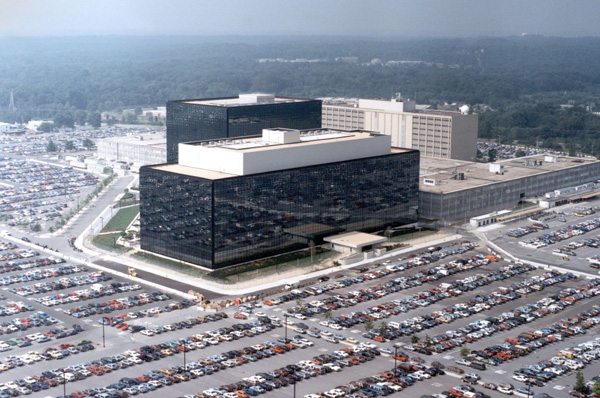US NSA's phone spying program ruled illegal by appeals court
(Agencies) Updated: 2015-05-08 09:51NEW YORK - A US spying program that systematically collects millions of Americans' phone records is illegal, a federal appeals court ruled on Thursday, putting pressure on Congress to quickly decide whether to replace or end the controversial anti-terrorism surveillance.
|
 |
|
An undated aerial handout photo shows the National Security Agency (NSA) headquarters building in Fort Meade, Maryland. [Photo/Agencies] |
Ruling on a program revealed by former government security contractor Edward Snowden, the 2nd US Circuit Court of Appeals in Manhattan said the Patriot Act did not authorize the National Security Agency to collect Americans' calling records in bulk.
Circuit Judge Gerard Lynch wrote for a three-judge panel that Section 215, which addresses the FBI's ability to gather business records, could not be interpreted to have permitted the NSA to collect a "staggering" amount of phone records, contrary to claims by the Bush and Obama administrations.
"Such expansive development of government repositories of formerly private records would be an unprecedented contraction of the privacy expectations of all Americans," Lynch wrote in a 97-page decision. "We would expect such a momentous decision to be preceded by substantial debate, and expressed in unmistakable language. There is no evidence of such a debate."
The appeals court did not rule on whether the surveillance violated the US Constitution.
It also declined to halt the program, noting that parts of the Patriot Act including Section 215 expire on June 1.
Lynch said it was "prudent" to give Congress a chance to decide what surveillance is permissible, given the national security interests at stake.
Enacted after the Sept. 11, 2001 attacks, the Patriot Act gives the government broad tools to investigate terrorism.
Thursday's decision voided a December 2013 ruling in which US District Judge William Pauley in Manhattan found the NSA program lawful. The appeals court sent the case back to him for further review.






